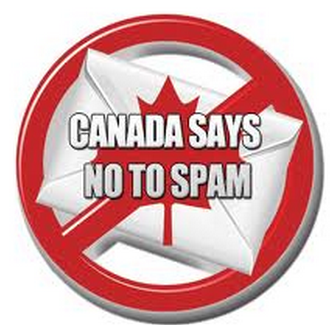9 Myths About the Canadian Anti-Spam Law (CASL)
Since the announcement that Canada is implementing new anti-spam legislation, affectionately known as CASL, there have been mixed reports on what this means. I, along with many others began writing about this new legislation hoping to clarify points and raise questions where there were uncertainties. Thankfully there have been many clarifications, but still many people have misconceptions about what this new law means. Here are some of the top misconceptions that I have heard:
1. This new legislation is about spam
True and False. Yes, it applies to spam for the consumer, but it is first and foremost about your business. This new legislation can have significant impacts on your bottom line. Not only are you potentially exposing your business to very large fines, but it also means reviewing, reassessing and modifying business processes. As a result, understanding what this law means and does not mean is essential for your business. Ensure that you have at least one person who fully understands what the implications and ramifications are for your business. Don’t leave it to chance.
2. This law only applies to email
False. This law applies to ALL consumer electronic messages (CEM), including text messages and social networking. To be clear it doesn’t impact Facebook Wall Posts or even Twitter posts, but rather direct messaging using those media, and others.
3. This law applies only to mass communications
False. This new law applies to one-to-one communications or one-to-many (mass communications).
4. This only applies to Canadian Companies
False. This applies to any company sending CEMs to people living in Canada. If you are located in the United States and sending CEMs and they could potential reach a Canadian in your database, you are subject to this law. Admittedly, I am not sure how this will be enforced.
5. You can no longer use LinkedIn InMail to communicate with Canadians
False. Additional exemptions have been made. They include CEMs sent from instant messaging platforms such as BBM messenger and LinkedIn InMail where the required identification and unsubscribe mechanisms are clearly published on the user interface. (source: Deloitte)
6. Canadian companies can no longer send CEMs to people in foreign countries
False. Canadians can send CEMs to parties outside Canada, as long as listed in Schedule 1 of the CASL Regulations and they are not in violation of similar laws in those same countries.
7. I need to go out and get permission from existing customers to communicate with them now
False. CEMs sent to and from businesses or organizations with an existing B2B relationship, can continue to do so. CEMs sent in response to enquiries, requests or complaints are also exempt. However, more detail is provided below.
8. My company does not have express consent from every contact in our database, so now we must rely on telephone or snail mail
False. Express consent is not needed in the context of an existing business or non-business relationship. (Note: there are conditions. See #9) The same is true in the context of recipients who publish their electronic contact information or, voluntarily disclose it without indicating they don’t want to receive communications. (source: Deloitte)
9. I need a business process to monitor consent from business contacts, because they expire
True and False. The legislation does provide a transition period for implied consent. Section 66, states that consent to send CEMs is implied for a period of 36 months beginning July 1, 2014, where there is an existing B2B relationship that includes the communication of CEMs. However, if the recipient indicates that he or she no longer want CEMs, the period has ended for that party. It is suggested by government that this is a good time to seek out consent.
It is important to note however that express consent does not expire after a certain period of time has passed. If you obtain valid express consent before July 1, 2014, then that express consent remains valid after the legislation comes into force. It does not expire, until the recipient withdraws their consent. (Source: Government of Canada)
There is no question that organizations need to adjust to this new way of doing business and having the right information will help alleviate some of the stress/concerns that businesses have. It should also be noted that Charities and Political Parties are exempt from CASL.
For more information, feel free to reach out to TaylorMade Solutions.


Trackbacks & Pingbacks
[…] affectionately known as CASL came into effect. While many of us have been following, reading and sharing what we can about this new and somewhat ridiculous law, there is still a significant amount of […]
[…] Finally, Heather MacLean (@heathermaclean), helps make sense of it all as she dispels 9 Myths About the Canadian Anti-Spam Law. […]
Leave a Reply
Want to join the discussion?Feel free to contribute!